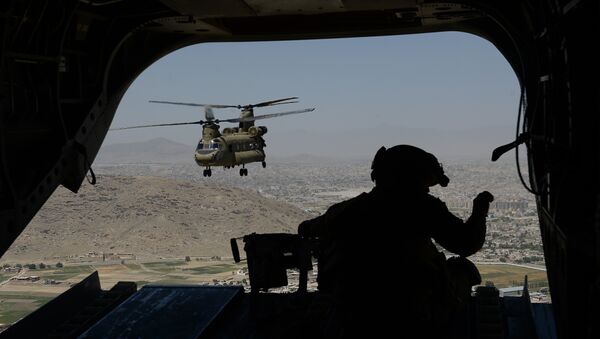The magazine has long called for “realism in US-China relations”, urging to avoid conflict with Beijing, rather than encouraging it.
The magazine noted that Beijing “shares Washington’s desires to see a stable and secure Afghanistan and Pakistan due primarily to Beijing’s own concerns with Uyghur terrorism in Xinjiang (China’s autonomous territory in the northwest).”
And the author suggested that Beijing’s “One Belt, One Road” (OBOR) strategy is “an area that holds potential.”
“First, the OBOR itself, while growing out of a decades-long agenda to firmly integrate Xinjiang and overcome Uyghur separatism and terrorism through the delivery of economic development, looks set to engage China more directly in the problems of the region.”
However the outlet has also examined the factors, such as Beijing’s geopolitical interests and its reputation, which could play against the country’s involvement in the region.
“China sat out the conflict in Afghanistan. It wanted neither a Western victory that might entrench a US military presence in its backyard, nor a Taliban victory that would pose risks to Xinjiang and the wider region. As a result, its financial and political contributions to Afghanistan were at best tokenistic, the minimum necessary to avoid alienating anyone,” it stated.
It further suggested that “greater Chinese security engagement in Afghanistan promises not only to make it a more overt target for radical Islamists, impacting negatively in the security of Xinjiang, but also to damage Beijing geopolitically by bringing it into conflict with its ‘all weather’ friend, Pakistan.”
“Speculation that China would actively consider a more overt security presence or engagement in Afghanistan, however, ignores the reputational costs this would impose on Beijing. Much of Beijing’s diplomatic success throughout Eurasia over the past decade has been built not only on its undoubted economic weight but also its ability to counter-pose its doctrine of ‘non-intervention’ to that of the West’s recent record of direct intervention into the affairs of others.”
In a separate article, The National Interest even suggested that it is time for the US to abandon Afghanistan.
“We are now (and have been for several years) almost exclusively at war with the Taliban, whose agenda (while socially repulsive) is focused on that country and does not pose a credible threat to the American homeland,” it says, reiterating the call of Senator Rand Paul that “it is well past time for anti-Taliban Afghans to step up and defend their own country without relying on the United States.”





